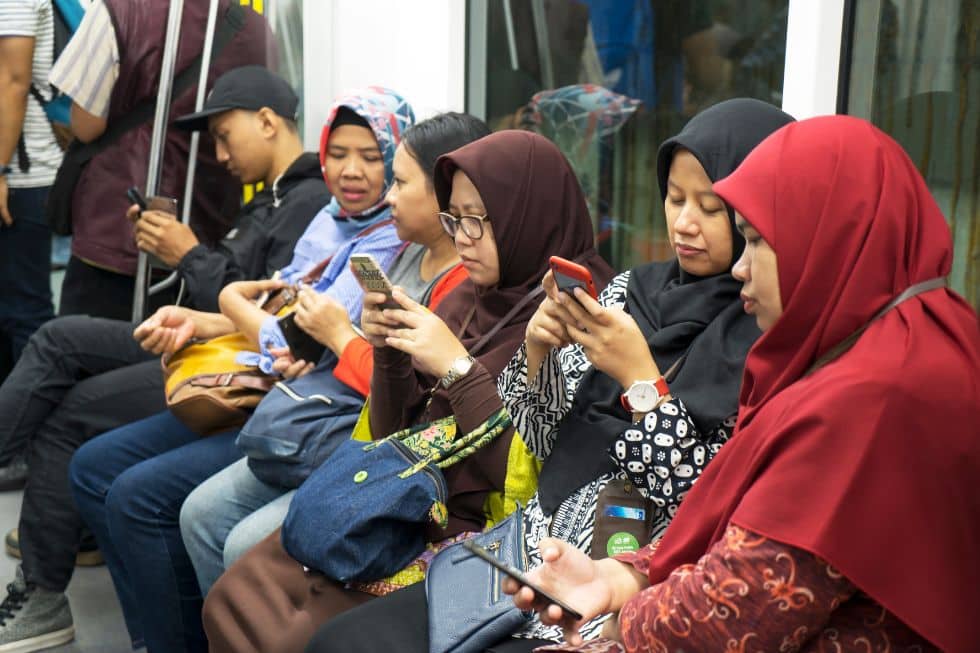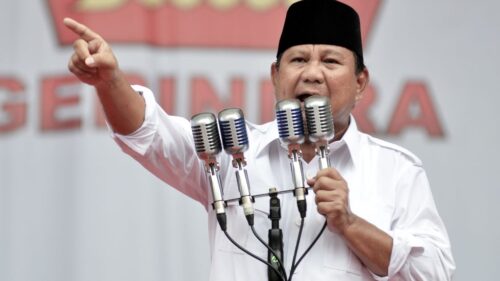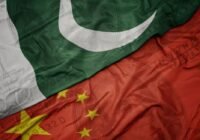In the wake of US President Donald Trump’s “Liberation Day” tariffs, Indonesia’s digital public sphere has been swamped by the spread of viral pro-China disinformation. From tales of a prophet’s tomb beneath the Great Wall to false claims of China breaching Israel’s Gaza blockade, these narratives have stirred debate, shaped sentiment and raised troubling questions, even if answers remain elusive.
Though no direct link to Beijing or the tariffs has been confirmed, the timing and reach of these stories warrant close attention.
The first wave centered on a provocative archeological claim: the supposed discovery of the revered Prophet Zulkifli’s tomb beneath the Great Wall. A YouTube short featuring this story quickly garnered 2.8 million views. Its appeal blended religious symbolism, cultural mystique and a spiritual connection to China that resonated with many Indonesian Muslims.
Comments poured in, both faithful and skeptical, some citing the often-misquoted hadith: “Seek knowledge even as far as China.” Others flagged the story’s reappearance, noting that it had circulated online as far back as 2022.
Suspicion mounted: Why was it trending again in 2025? Was it being deliberately recycled to influence public opinion?
As the tomb story gained momentum, another narrative emerged, this time overtly geopolitical in tone. Social media accounts claimed China had broken through Israel’s military blockade of Gaza to deliver humanitarian aid, alone and undeterred. A popular Instagram post even described China as the only country brave enough to challenge Israeli control and provide assistance to Palestinians directly.
The posts were persuasive and powerful, with imagery of trucks, soldiers and parachutes suggesting a righteous mission. The timing was compelling: since March 2, Israel had sealed Gaza’s borders, worsening a humanitarian crisis. In Indonesia, where pro-Palestine sentiment runs deep, the idea of China as a bold and compassionate actor struck a chord.
But fact-checkers at Tempo and other media outlets revealed the truth. The narrative was a fabrication. The videos were stitched together from unrelated clips: old footage from 2024 aid deliveries, UNRWA operations and international air drops involving the U.S., Indonesia and European nations. While China pledged aid, it delivered via Jordan, not by breaching the blockade.
Despite these corrections, the damage had already been done. These narratives positioned China as both a spiritual partner to Muslims and a moral alternative to the West — bold, benevolent and unafraid of confrontation. In the process, they also neatly diverted attention from China’s economic entanglement in the fallout from Trump’s tariffs.
Which brings us back to the bigger question: is this mere coincidence?
It’s premature to assert that Beijing is behind this wave of disinformation. There is no forensic trail, no leak and no definitive evidence of state sponsorship. But the narratives’ resonance, the re-use of old content, and their alignment with geopolitical tensions suggest more than random viral noise. Whether pushed by nationalists, click farms, or covert actors, the effect is the same: to distract, seduce and divide.
It is also essential to understand the uniquely fertile ground in which these stories took root. Indonesia, with its vast and volatile digital ecosystem, is especially vulnerable. Religion, politics and pop culture intertwine online and weak regulations make disinformation a structural feature of the landscape.
Global South, global patterns
This matters because Indonesia is not an isolated case. The dynamics unfolding here — the entanglement of foreign policy narratives with cultural identity, the weaponization of myth, the speed of viral deception — echo patterns seen across the Global South. As Chinese soft power expands and Western influence shifts, the battle for public opinion unfolds not in official press releases but on platforms like TikTok, YouTube Shorts and WhatsApp.
What’s happening in Indonesia is not an anomaly. It’s a preview of how geopolitical stories will be contested in a post-truth world. Tariffs may have sparked the moment, but the real contest is for hearts and minds, waged through symbolism and sentiment, not statistics.
We shouldn’t overreact. Not every viral post is part of a conspiracy. But neither should we dismiss them. Dismissing these stories as mere oddities overlooks the strategic vacuum they fill and the damage they can cause. In a world where the line between news and myth continues to blur, vigilance, digital literacy and a renewed commitment to transparency are our best defenses.
We may not yet know who is behind these stories. But we do know what’s at stake: not just the facts behind a prophet’s tomb or aid to Gaza, but the credibility of the public sphere itself. And in the long shadow of trade wars and power shifts, that may turn out to be the most crucial battleground of all.[Nicolette Cavallaro edited this piece]
The views expressed in this article are the author’s own and do not necessarily reflect Fair Observer’s editorial policy.
Support Fair Observer
We rely on your support for our independence, diversity and quality.
For more than 10 years, Fair Observer has been free, fair and independent. No billionaire owns us, no advertisers control us. We are a reader-supported nonprofit. Unlike many other publications, we keep our content free for readers regardless of where they live or whether they can afford to pay. We have no paywalls and no ads.
In the post-truth era of fake news, echo chambers and filter bubbles, we publish a plurality of perspectives from around the world. Anyone can publish with us, but everyone goes through a rigorous editorial process. So, you get fact-checked, well-reasoned content instead of noise.
We publish 3,000+ voices from 90+ countries. We also conduct education and training programs
on subjects ranging from digital media and journalism to writing and critical thinking. This
doesn’t come cheap. Servers, editors, trainers and web developers cost
money.
Please consider supporting us on a regular basis as a recurring donor or a
sustaining member.
Will you support FO’s journalism?
We rely on your support for our independence, diversity and quality.











Comment